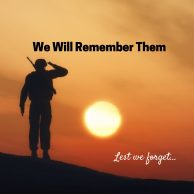
A Report Released by the Productivity Commission Reveals a 25% Increase in Persistent Homelessness Across Australia
A report released by the Productivity Commission has revealed a 25% increase in persistent homelessness across Australia over the past five years, with nearly 38,000 people now without a stable home for seven months or longer. Among the homeless community, military veterans continue to be disproportionately affected.
Veterans are nearly three times more likely to experience homelessness compared to the general population. Vasey RSL Care, a leading provider of ex-service accommodation, has seen firsthand the growing pressure on their veteran housing services, with increasing demand from veterans and their families in urgent need of stable accommodation.
“Those who have served our nation should not be left without a home, yet too many are struggling to find secure housing after their military service,” says Janna Voloshin of Vasey RSL Care. “We stand ready to be part of the solution. Vasey RSL Care has veteran social housing projects ready to go—we just need the government contribution to ensure those who served are not left behind.”
Despite the clear and urgent need for investment in veteran housing, millions of taxpayer dollars are being allocated to Gaza rehabilitation efforts. While humanitarian aid is important, there is growing concern that Australia’s own vulnerable populations—including military veterans—are being neglected in favour of overseas commitments.
Vasey RSL Care is urging immediate action. “We call on the government to prioritise investment in veteran housing and ensure that no Australian who has worn the uniform is left without a place to call home. It’s time to look after them.”
The Royal Commission into Defence and Veterans Suicide has highlighted the dire situation facing Australia’s ex-service personnel. Veterans are not only three times more likely to experience homelessness than the general population, but they are also over twice as likely to die by suicide. Contributing factors include being single, unemployed, subject to financial strain, and experiencing a greater number of traumatic life events than the broader population.
The question remains: Why is the government prioritising international aid over the wellbeing of those who have served our nation? Ensuring stable housing for veterans is not just a moral obligation but a national responsibility. It is time for the government to reassess its spending priorities and put Australian veterans first.




